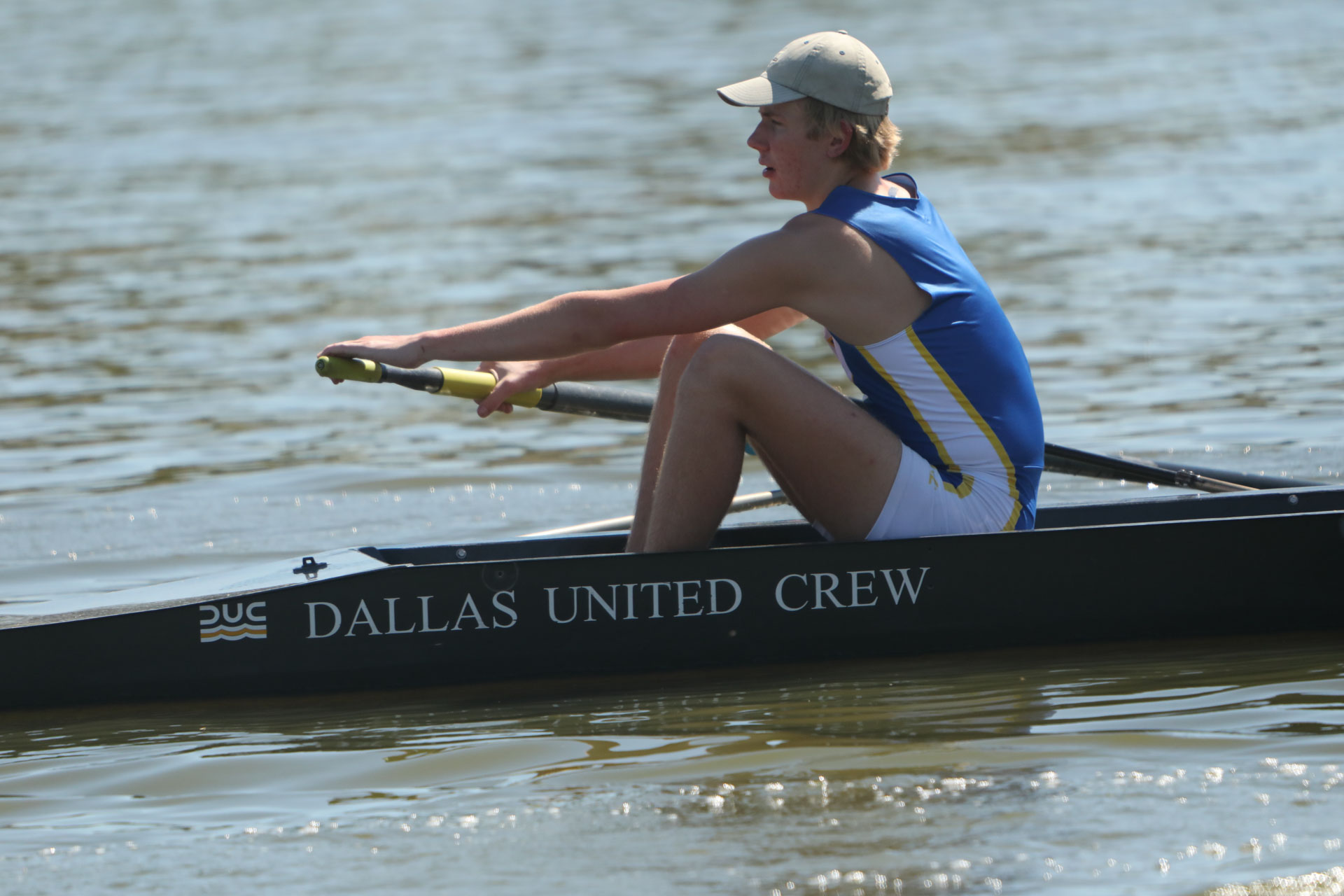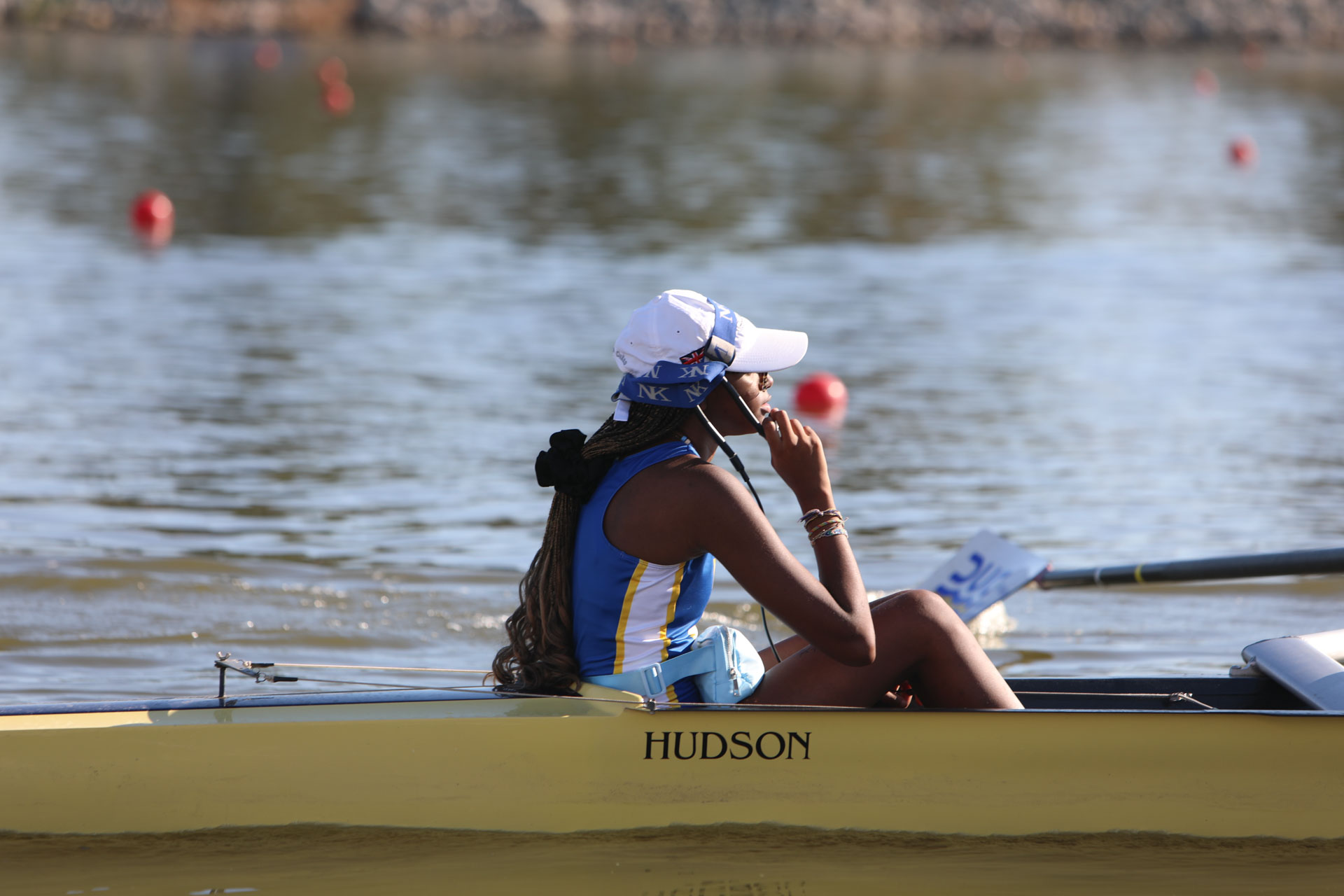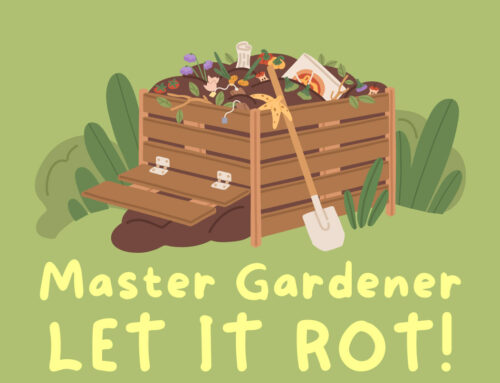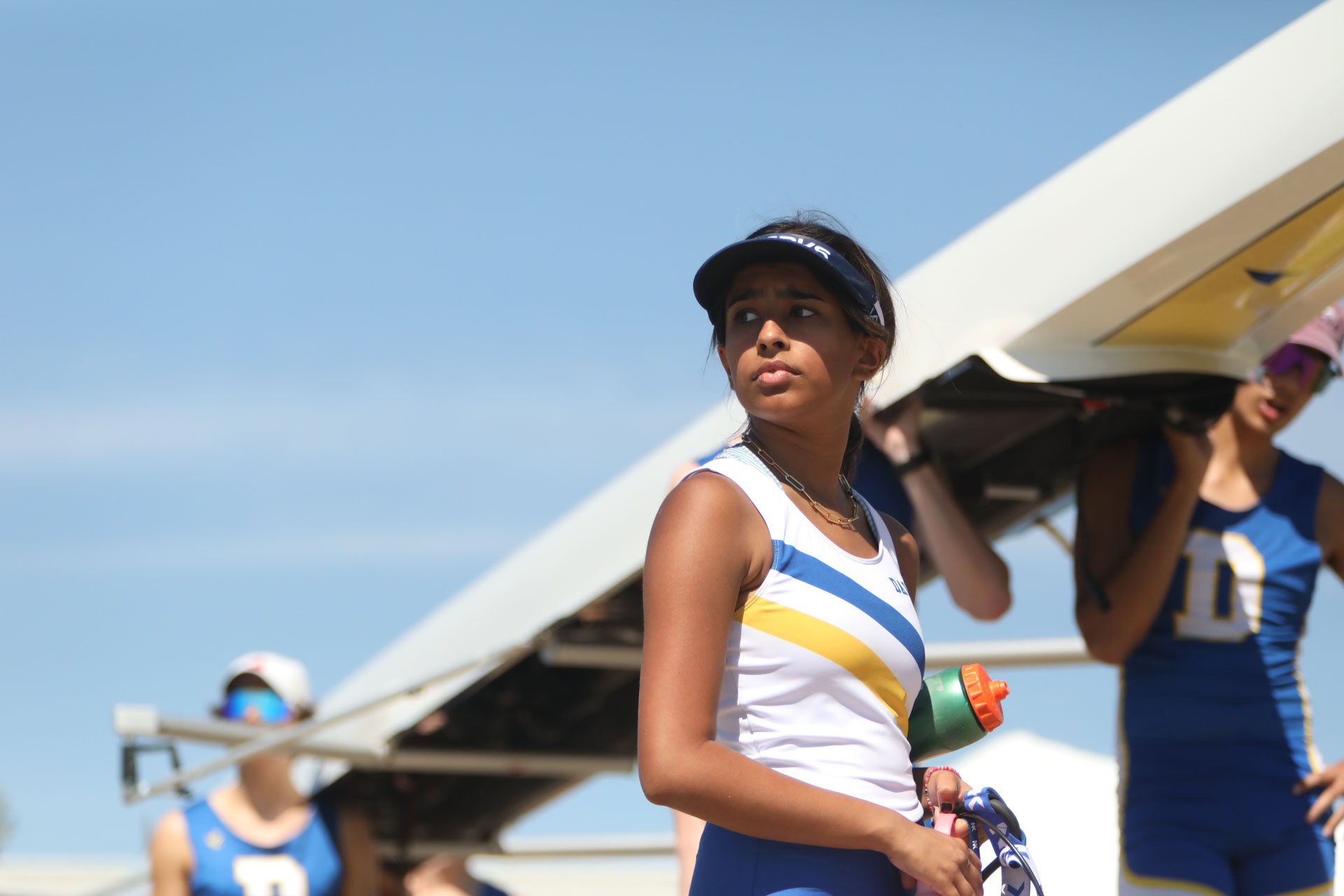
Photo courtesy of Dallas United Crew.
It was a busy afternoon at Dallas United Crew’s boathouse on White Rock Lake, even though no one was preparing to get on the water. High-schoolers pulled down rowing machines from where they were stored vertically along the walls. Middle-schoolers milled about, chatting with their friends, and then reluctantly headed toward the walking trail outside for a warmup jog. Intermittently, coaches gave orders, explaining the day’s workout to high-schoolers or doing their best to wrangle the middle-schoolers. The boathouse was loud with chatter and the whir of the rowing machines’ fans; the high ceiling and carbon fiber boats echoed every noise.
In the middle of it all was Nan Miller. Miller has been DUC’s middle school coach for the past five years, and if there’s anyone who knows how to navigate the din, it’s her. If her shoulder-length shock of straight white hair wasn’t enough to make her stand out in a crowd, the megaphone she wields makes her impossible to miss. When the middle schoolers returned from their jog, she explained the plan for the day, which was the last practice of the fall season: a 250-meter sprint on the rowing machines, a test of how much fitness the rowers had built over the past few months.
The middle-schoolers wore different expressions at the news: some excited, some nervous, some unimpressed. Some of them have joined the team through RowDallas, a program DUC has created in partnership with Dallas ISD and Dallas Park and Recreation. RowDallas invites kids from two Title I schools in the city to join the middle school crew, and if they continue to row in high school, DUC provides them with unique scholarship opportunities.
Half an hour later, when it’s time for the 250-meter test, half of the middle -schoolers sit on rowing machines, while the other half whoop and cheer their teammates on. You’d never guess who is and isn’t from the RowDallas program; at the boathouse, and out on the water, the rowers are one cohesive unit. It’s the first year of rowing for all of them, so they’re all learning together.
“I always say,” Miller mentioned, ‘There’s no equalizer like the boathouse.’”
Rowing is traditionally reserved for the wealthiest and most privileged of athletes. For example, the Henley Royal Regatta, one of the most prestigious rowing races in the world, used to explicitly exclude anyone “who is or has been by trade or employment for wages a mechanic, artisan or laborer.” Even today, the expensive upkeep of rowing boats and equipment often makes the costs to join the sport exorbitantly high. Traditionally, it is also an overwhelmingly white sport — only five Black rowers have ever represented the United States at the Olympics.
“From a bigger picture standpoint, we are not drawing our best athletes because of the lack of inclusion that we have in the sport,” says Austin Brooks, the executive director of DUC. “Our hope is down the line, as RowDallas grows and improves, that we’re really drawing the best athletes into our program (and) promoting them to get recruited to college.”
Not only does RowDallas give middle-schoolers the opportunity to row, but the program also provides tutoring. The RowDallas students meet weekly at the Harry Stone Recreation Center and hone skills they might be struggling with at school, particularly in math. Jacqueline Freeman, a former CPA who rows in the DUC’s masters program, is one of the tutors who volunteers to help out. She says that their sessions usually focus on helping students with foundational skills they need to start learning more advanced concepts like algebra.
“It’s not a drudgery type of tutoring,” Freeman says. “It’s something that I believe firmly; if you’re passionate about what you’re teaching, they’re going to pick up your passion for it as well.”
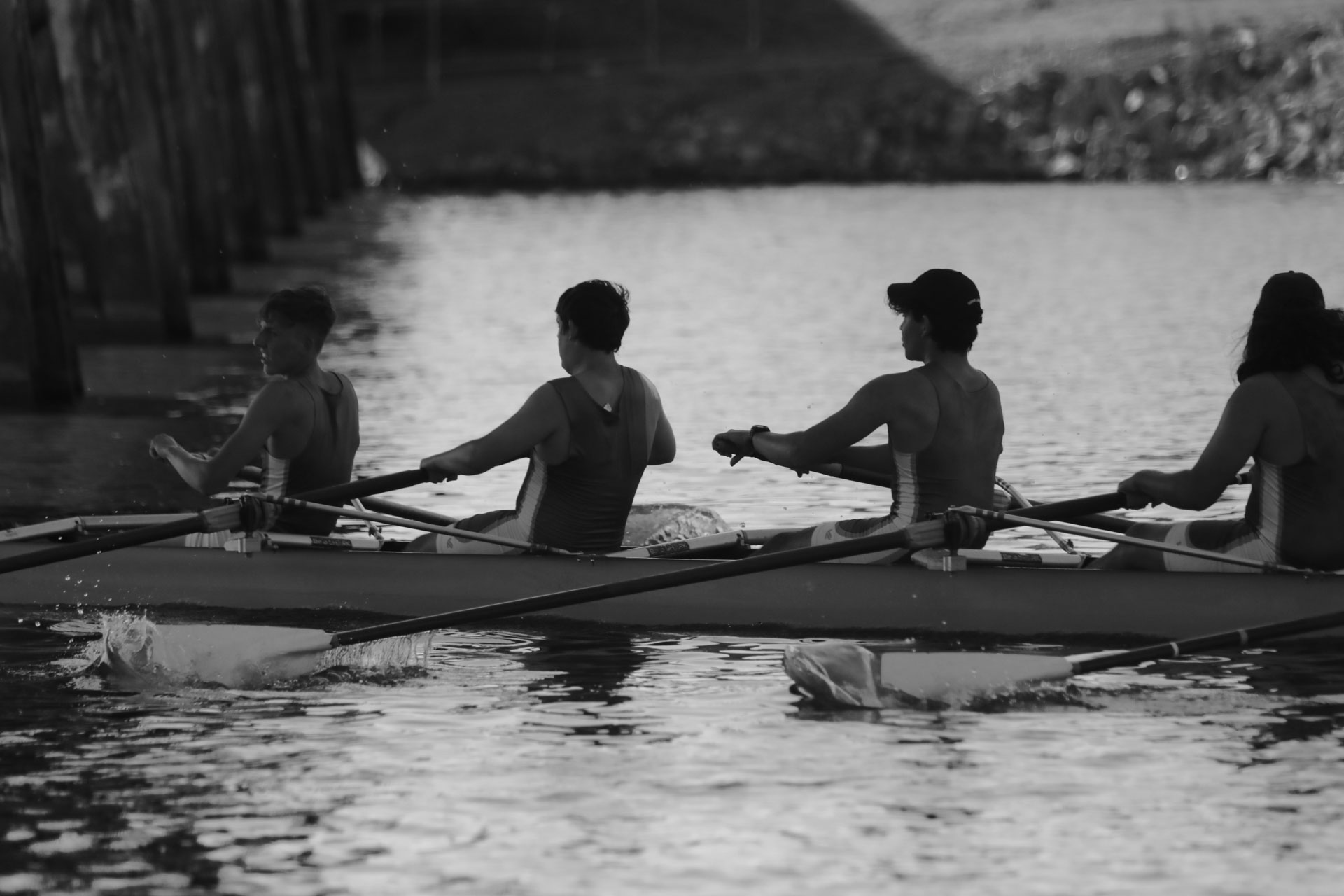
In addition to math tutoring, RowDallas students also work on science projects, which Freeman says the kids have a lot of fun with. Last year, the project was thinking of a problem astronauts might encounter while living in a space station, and how they might solve that problem. This year, with the help of an SMU computer science student named Nicole Sood, the students learned about coding. Sood walked students through demonstrations, showing them how changing small variables could make or break codes.
“It really got their attention, and then they were asking a lot of questions,” Sood says.
Sood believes STEM is best taught in a hands-on fashion, so before the last practice of the season, she arranged a field trip for students to visit the Deason Innovation Gym at SMU. There, students got to experiment with 3-D printers and laser cutters. Solving a math problem was no longer about getting good grades; suddenly, it was in order to configure a laser. Sood was proud of how students’ eyes would light up when they brought the designs they had created to life through math and science.
“They got to see some other potentials of engineering that isn’t just like, ‘Solve this math problem to get this answer.’” Sood says. “It’s like, ‘We’re solving this math problem so we can cut this out and physically have it with us.”
In the future, Miller hopes that DUC can expand the RowDallas program into more schools and provide more opportunities to the kids in the program, like offering swim lessons. In the meantime, she focuses on fostering a love of the sport. She emphasizes the psychological benefits rowing can provide besides the physical aspect, like being out in nature or learning about teamwork.
“Nothing about rowing is about you,” Miller says. “You can’t do anything if you’re not working together, and that’s why it’s called the ultimate team sport.

